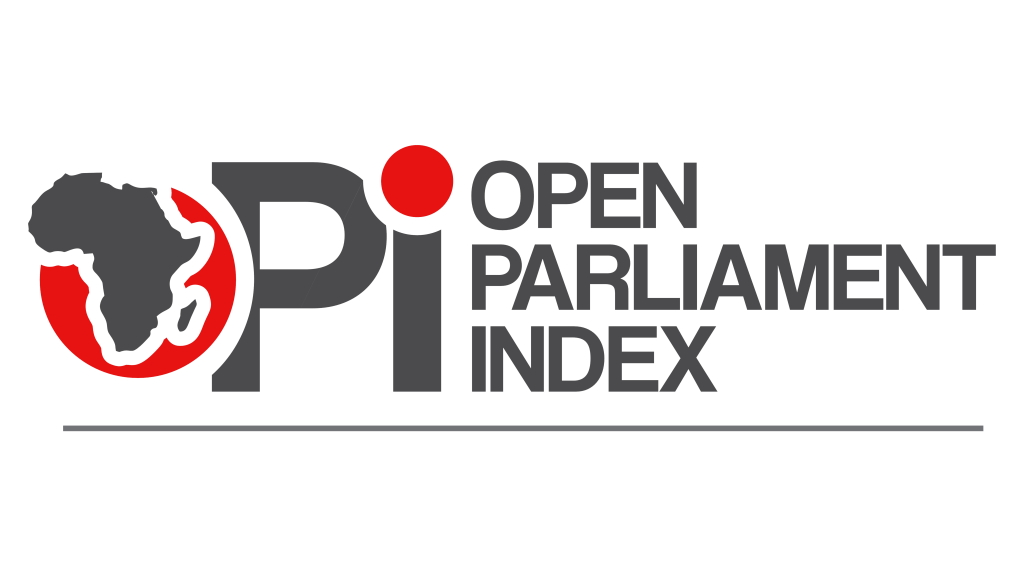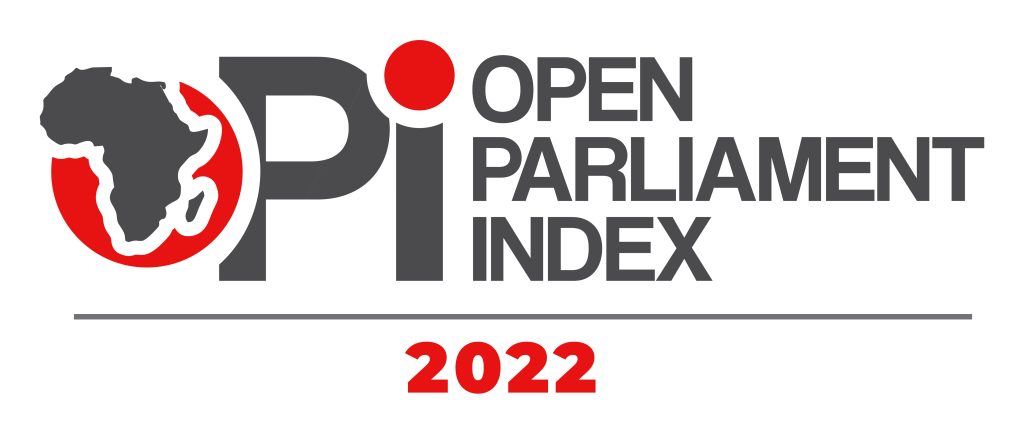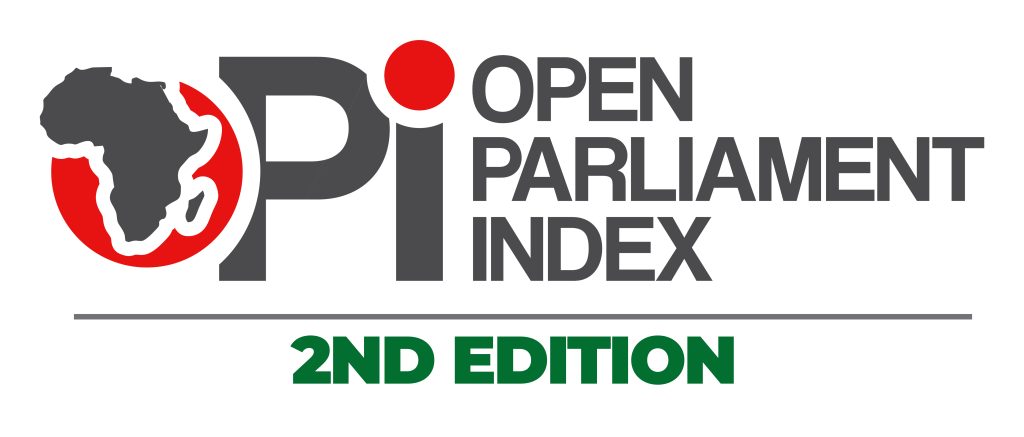OPI
- Home
- OPI

WHAT IS OPI
The OPI, which was first released in 2023, is a biennial tool championed by the Africa Parliamentary Monitoring Organisations Network (APMON) – a coalition of civil society organisations monitoring and engaging national, sub-national and transnational legislative assemblies across the Continent. APMON was initiated in 2015 to contribute to the institutional strengthening of Parliaments through CSO-Parliament collaborations. Building upon the successful outcomes of the maiden OPI, which was piloted in West Africa only, this Second Edition expands the OPI’s reach by assessing countries in the West, East and Southern Africa regions, and offers recommendations that need to be taken into account by the various legislatures.
The Africa Open Parliament Index (Africa OPI) is a data-driven instrument developed to measure and analyze how open and responsive African parliaments are, across three core dimensions: transparency, civic participation, and public accountability. Comprising 48 carefully selected indicators, the Index is structured to enable comparative analysis between parliaments – whether at the national, sub-national, or regional level. Beyond comparison, the OPI also tracks progress over time, offering a consistent benchmark for improvement, as it is published every two years.
It is hoped that the results will provide citizens, CSOs, the press, Parliaments and other decision-makers, an evidence-based document that reflects the state of affairs in various parliaments, and to encourage advocacy, further research and co-creation of reforms that will seek to ensure progress. To this end, the announcement of this OPI results is not an end in itself. Instead, it is the beginning of a collaborative process to ensure that when the next Index results are announced two years from now, we will be able to record traceable progress and celebrate improvements in the overall state of parliamentary openness in Africa.
What are the objectives of the OPI?
There are three main objectives the OPI seeks to achieve:
The OPI defines an Open Parliament as one that is transparent and accountable to the people that it is set up to serve, and encourages citizens participation in its work. To this end, three broad dimensions are considered in the measurements with the following working definitions:
- Transparency: Parliament that discloses more information, improves the legal or institutional frameworks to guarantee the right to information, improves the quality of parliamentary information disclosed to the public, and improves the transparency of its decision-making processes or systems.
- Civic Participation: Parliament that creates or improves opportunities, processes or mechanisms for the public to inform or influence decisions; creates, enables or improves participatory mechanisms for minorities or underrepresented groups; and enables a legal environment that guarantees freedoms of assembly, association and peaceful protest.
- Public Accountability: Parliaments whose Members are answerable to citizens on their performance and integrity of their conduct in office; and Parliament that reports on their institutional performance regularly and in a transparent manner.
The OPI is developed with three specific objectives as stated below:
- To strengthen parliamentary institutions towards the advancement of parliamentary openness across national, subnational and regional parliaments;
- To identify, compare and exchange knowledge and best practices among parliaments, and among CSOs that work with parliaments; and
- To foster collaboration between civil society and parliaments towards achieving the principles of open parliament, providing a platform for amplifying open parliament initiatives.


